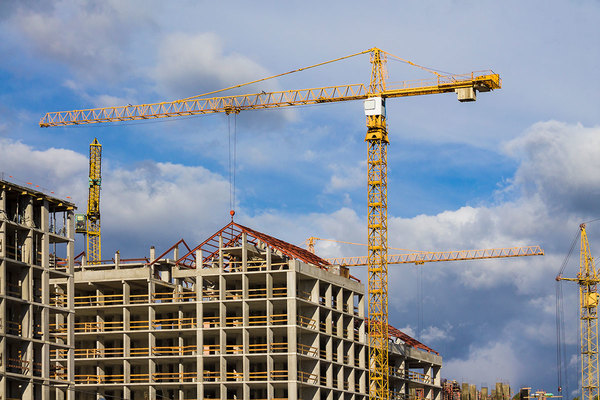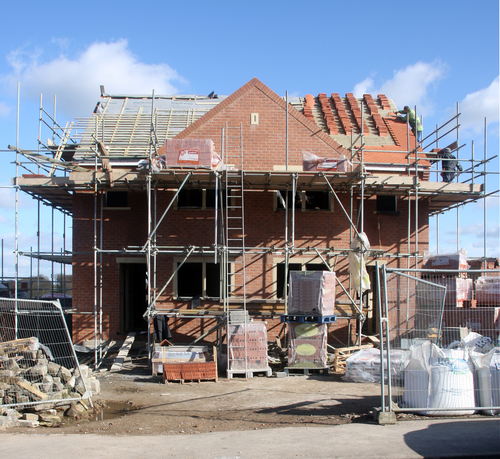You are viewing 1 of your 1 free articles

Councils have the ambition to build, they just need more government backing
Housebuilding among councils may be making a comeback, but it is still a long way from previous eras. However appetite among councils remains, and the government must do more to back them, argues Martin Tett
The latest figures published show that councils completed 2,600 homes last year – the highest level since 1992.
However, the figures are a stark reminder that councils remain unable to build as many homes as they would like to be able to.
As we look ahead to the Spending Review, there is no shortage of vision and ambition in councils across the country to tackle the national housing shortage.
The government must use it to provide the funding and powers to allow councils to get on with the job.
This year is the centenary of the Housing and Planning Act, often dubbed the Addison Act, which ushered in the birth of council housebuilding.
Over the past 100 years, councils have built thousands of good-quality homes to meet the needs of their communities – and the anniversary is a reminder of what councils can do when they have the right tools.
Historically, councils have played a much bigger role as national house builders and have worked with developers and housing associations to help make sure houses people are proud to call homes are built. The last time the country built more than the 300,000 homes each year it is estimated we currently need was in 1977/78, when councils built 44% of them.
However, in recent years councils have been unable to build as many as they once had, despite the appetite to do so.
In the same year as councils built nearly half of all new builds, there were five million council homes. Now there are just 1.6 million, with one in 10 of all households living in council housing, compared with a third in 1977.
There is a desperate need to reverse the long-term decline in council housing in this country. Councils are well-placed to plug the housing gap and a renaissance in council housebuilding is necessary if we are to stand any chance of solving our housing crisis.
Through their housebuilding plans, councils up and down the country are articulating a positive vision for change.
With more than 1.2 million people on council housing waiting lists, on top of 200,000 people in temporary accommodation, over half of whom are children, we cannot afford to do nothing.
The lack of affordable, good-quality housing and the steady decline of homes for social rent damages our communities, holding back growth and the creation of jobs.
But councils cannot tackle it alone.
The government has listened to our call to scrap the Housing Revenue Account borrowing cap by lifting it last year, and many councils have responded by accelerating or increasing housebuilding, or putting plans in place to do so. However, more needs to be done to empower councils to build more homes on top of their already ambitious plans.
In order to support councils to reinvest in existing stock or build more homes, the government needs to reform Right to Buy to ensure that councils retain 100% of their receipts and can set discounts locally.
“With more than 1.2 million people on council housing waiting lists, on top of 200,000 people in temporary accommodation, over half of whom are children, we cannot afford to do nothing”
Councils also need planning departments with teeth. Council planning departments are not a barrier to housebuilding – and approve nine in 10 applications, with hundreds of thousands of homes given planning permission but yet to be built.
Giving councils the powers to set their own planning fees would save councils £200m each year, money which could be spent on the other 900 vital services councils deliver every single day.
That is why the government also needs to scrap permitted development rights.
Since 2013, developers have had a right to convert office space into residential homes, a right they have exploited with nearly 7% of new homes provided in this way in the past three years. Unfortunately, because homes delivered through permitted development rights are exempt from the full local planning process, they come forward with minimal scrutiny and outside of local authority control.
These homes are also delivered without making any contribution towards affordable housing, which other forms of development are required to do.
This means that we are losing out on thousands of genuinely affordable homes that would be delivered if these homes went through the planning system.
The result of this is that despite housebuilding rising, councils are not in a position to place families in more secure and better-quality temporary accommodation, or support the most vulnerable on housing waiting lists.
Councils are desperate to tackle this growing housing backlog and get the country building again. With government support, we can unlock the potential and growth our communities desperately need.


